Search
Remove Ads
Advertisement
Summary 
Loading AI-generated summary based on World History Encyclopedia articles ...
Search Results
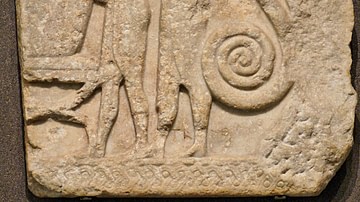
Definition
Agamemnon (Play)
The play Agamemnon was written by one of the greatest Greek tragedians Aeschylus (c. 525 – 455 BCE), “Father of Greek Tragedy.” Older than both Sophocles and Euripides, he was the most popular and influential of all tragedians of his era...
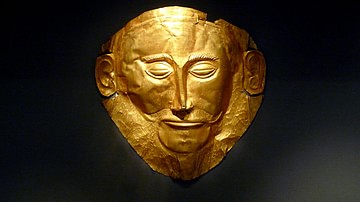
Definition
Agamemnon (Person)
Agamemnon was the legendary king of Mycenae and leader of the Greek army in the Trojan War of Homer's Illiad. Agamemnon is a great warrior but also a selfish ruler who famously upset his invincible champion Achilles, a feud that prolonged...
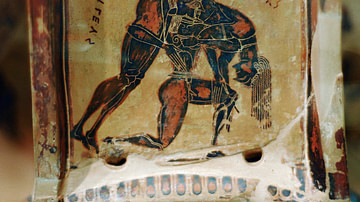
Definition
Ajax (Play)
Ajax is a play written by the 5th-century BCE Greek poet and dramatist Sophocles. Although Sophocles wrote at least 120 plays, only seven have survived. Of his surviving plays, the best-known is Oedipus Rex (Oedipus the King) - part of a...

Definition
Iphigenia in Aulis
Iphigenia in Aulis (or at Aulis) was written by Euripides, the youngest and most popular of the trilogy of great Greek tragedians. The play was based on the well-known myth surrounding the sacrifice of Agamemnon and Clytemnestra's daughter...
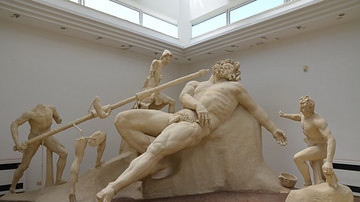
Definition
Cyclops (Play)
The satyr-play The Cyclops was written by Euripides, one of the great Greek tragedians, in 412 or 408 BCE. Like many of his fellow tragedians, Euripides centers his play on a well-known story from Greek mythology. The Cyclops is based on...

Definition
Helen (Play)
Helen is a Greek tragedy by Euripides (c. 484-407 BCE). It is usually thought to have first been performed at the Great Dionysia of 412 BCE and was part of the trilogy that included Euripides' lost Andromeda. Helen recounts an unusual version...
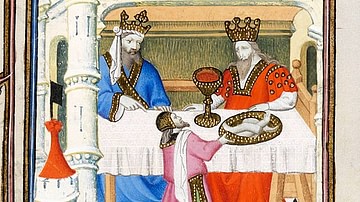
Definition
Atreus
Atreus was the mythical Greek king of Mycenae. He is perhaps best known for being the father of Agamemnon and Menelaus, two heroes of the Trojan War, as well as for the terrible curse placed upon his family. This was a hereditary curse, plaguing...
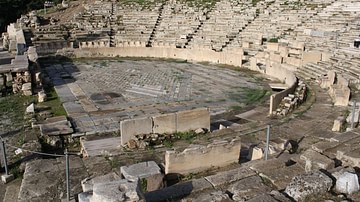
Definition
Plutus (Play)
Plutus (aka Wealth) is a play written by the great Greek comedy playwright Aristophanes in 388 BCE. It was the last of his plays to be performed during his lifetime. Like his earlier play Ecclesiazusae (The Assemblywomen), Wealth was written...
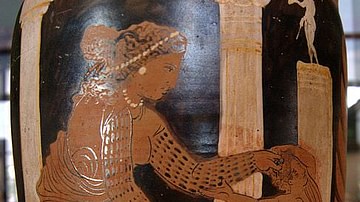
Definition
Medea (Play)
The tragedy Medea was written in 431 BCE by Euripides (c. 484 – 407 BCE). Euripides authored at least 90 plays of which 19 have survived intact. As with the plays by Sophocles and Aeschylus, the audience was already well aware of the myth...

Definition
Libation Bearers
The play Libation Bearers was written by one of the greatest of all Greek tragedians Aeschylus (c. 525-455 BCE). Winning first prize at the Dionysia competition in 458 BCE, Libation Bearers was the second play in the trilogy The Oresteia...